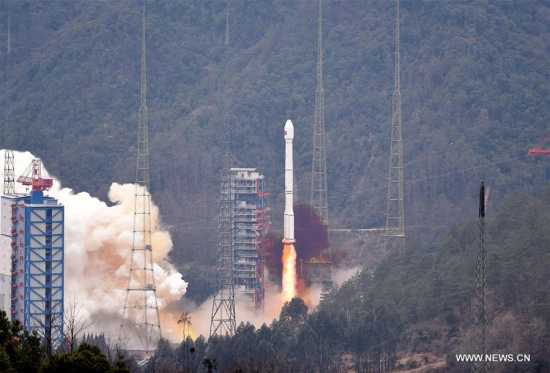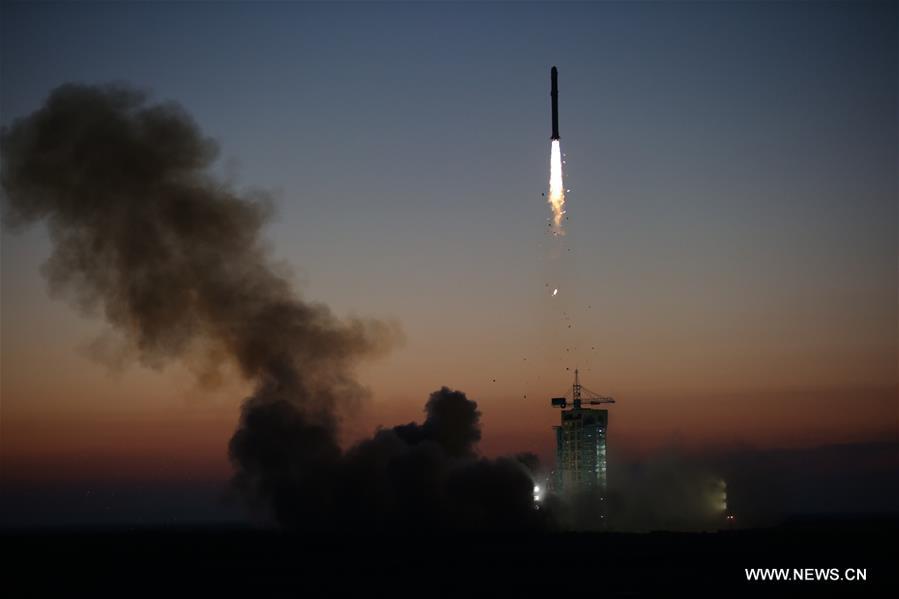
A Long March-3C carrier rocket carrying the 21st satellite for the BeiDou Navigation Satellite System lifts off from Xichang Satellite Launch Center,southwest China's Sichuan Province, Feb. 1, 2016. (Photo: Xinhua/Xue Yubin)
China put a new-generation satellite into orbit to support its global navigation and positioning network at 3:29 p.m. Monday.
Launched from Xichang satellite launch center in the southwestern province of Sichuan, the satellite was aboard a Long March-3C carrier rocket. It is the 21st satellite in the Beidou Navigation Satellite System, and takes China one step closer to providing an alternative to the United States' GPS system.
The first 16 Beidou satellites formed a network that only covered China and nearby regions. The first new-generation satellite in the series, or the 17th in total, was launched in March last year to help the network transition from regional to global coverage.
Once in orbit, Monday's satellite, the fifth of the new generation, will join its four predecessors in testing inter-satellite crosslinks and a new navigation-signalling system that will set the framework and technical standards for global coverage.
According to Xiang Libin, commander-in-chief of the Beidou project, the latest satellite is crucial to integrating the two signal systems for regional and global navigation and switching between the two.
"Our new intersatellite crosslink system, featuring strong disturbance resistance and high-level privacy, is the core technology to compete with other countries' navigation networks. The new satellite will fully verify our technology," said Lin Baojun, the satellite's chief designer.
According to Lin, the satellite will operate without the help of ground control and broadcast continually, key requirements for navigation services.
Designed for medium Earth orbit, the satellite will fly at an altitude of around 20,000 kilometers to detect high energy particles, which abound in the orbit and threaten satellite components and functions, so that the Beidou project can better avoid their interference.
Also, the satellite carries a China-made chip that will, if proved successful, help in the design of smaller, better integrated, more reliable satellites, deputy commander-in-chief Li Guotong said.
Named after the Chinese term for the Big Dipper constellation, the Beidou project began in 1994, some 20 years after GPS.
The first Beidou satellite was not launched until 2000, but by 2012, a regional network had taken shape, providing positioning, navigation, timing and short message services for China and several other Asian countries.
China plans to expand the Beidou services to most of the countries covered in its "Belt and Road" initiative by 2018, and offer global coverage by 2020.
ground stations overseas, a move that will facilitate public services in China and other nations, an industry insider said on Tuesday.
China on Thursday sent into space the country's first Dark Matter Particle Explorer (DAMPE) Satellite in a fresh search for smoking-gun signals of the invisible material that scientists say makes up most of the universe's mass.




















































